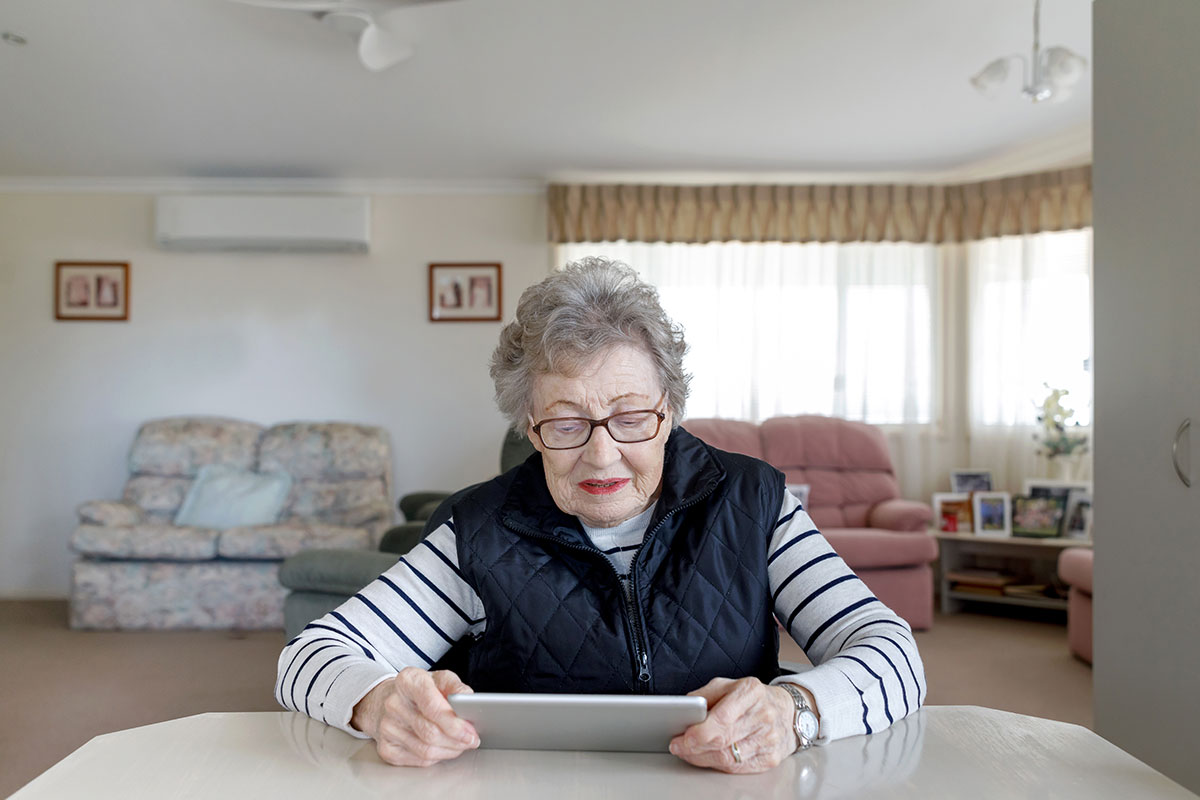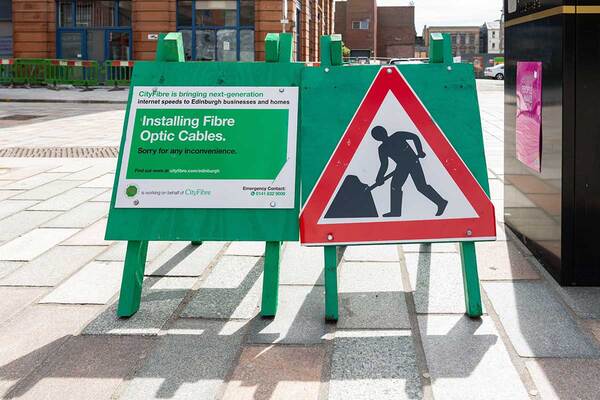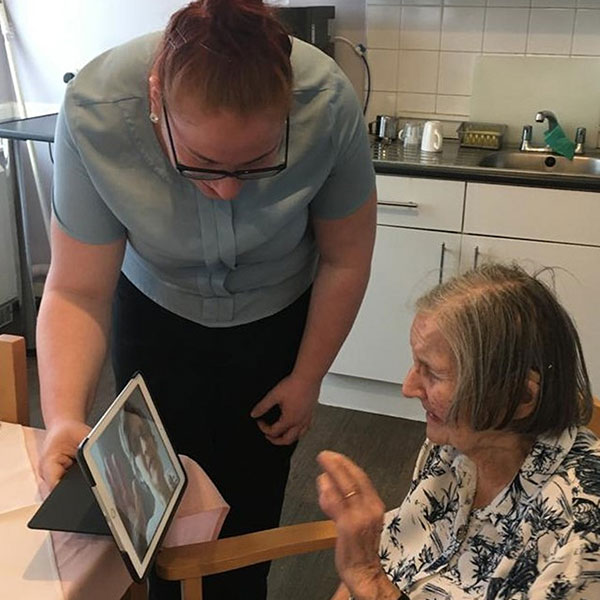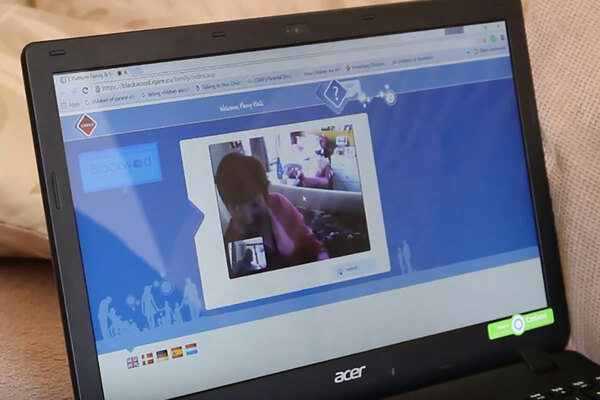You are viewing 1 of your 1 free articles
How the pandemic is speeding up the digital transformation of housing services
During the course of lockdown, social landlords have been distributing iPads and phones, and transforming how they engage with tenants. Gavriel Hollander reports
It is not always easy to find positives amid the grim daily flow of coronavirus news, but for many housing associations the pandemic is forcing them to rethink how they deal with their tenants – which might not be a bad thing.
“This will change the way we offer services to customers, and their expectations of us will change, too,” says Nick Atkin, chief executive of Yorkshire Housing, who sees the crisis as being a catalyst for progress in terms of landlords’ relationships with residents.
Yorkshire Housing is just one of a number of associations that have had to up their digital game in response to the pandemic, in particular where older or more vulnerable tenants are concerned.
Mr Atkin estimates that a little over a quarter of the landlord’s 19,000 homes have somebody over 70 living in them. And with so many of these residents now self-isolating, it led to a huge change in the organisation’s day-to-day operations.
Yorkshire Housing triggered its continuity plan when the World Health Organization declared a pandemic on 12 March, so by the following Monday (16 March) its entire customer service team was equipped to work from home.
Counter intuitively, however, what the crisis has meant for residents was more – not less – personal contact time with their landlord, even if that contact is less likely to be in person.
Instead of furloughing staff, Yorkshire Housing reallocated many of them to provide intensive customer support, including help through the Universal Credit application process – something many residents are dealing with for the first time.
Although a lot of the assistance the landlord provides is offered digitally, Mr Atkin says the technology itself is “a by-product” of the housing association’s continuity planning: “It’s about adapting these things to what is useful and to what people want to use.”
For other landlords, particularly those with even larger proportions of older residents, the challenge has been making the technology available and usable. A part of that challenge has been identifying which residents might be in most need.
Anchor Hanover, the UK’s largest provider of specialist housing for older people, estimates that a significant proportion of its residents outside of its care homes could be living alone.
Many of these will be self-isolating and cut off from their normal support networks, as Anna Clewlow, customer involvement manager at Anchor Hanover, recognises.
“The majority of people are OK,” she tells Inside Housing. “But there are a set of people who are struggling to get supplies and who are feeling isolated. There are people who slip through the net and those are the people we have to contact.”
Luckily, an attempt to engage residents with the digital world was already under way at the 54,000-home association. Part-funded by insurance group Aviva, the ‘Stay Connected’ digital inclusion project is designed to help residents maintain contact with family and friends while in isolation.
“The project is about trying to demonstrate the benefits of older people becoming digitally connected,” explains Ms Clewlow. Since the scheme started in 2018, around 750 residents have been involved and around 100 tablet devices have been deployed.
Since being given an iPad, Sanctuary Care resident Muriel Buniak has been able to call her loved ones
When the reality of the coronavirus-enforced lockdown became apparent, demand “went through the roof”, according to Ms Clewlow. In the first two weeks of April, 250 tablets went out to customers. Another 200 devices are on order and there is a growing waiting list.
“Our issue now is that we have more demand,” adds Ms Clewlow. “I would guess there’s a lot bigger demand than we are really tapping into.”
Anchor Hanover is supplementing the £100,000 of funding it received from Aviva with its own community grant fund – which is drawn from bequests from its care home residents – to extend the scheme.
“This will change the way we offer services to customers, and their expectations of us will change, too”
Nick Atkin, chief executive, Yorkshire Housing
And, like Yorkshire Housing, it has been creative with its own resources by repositioning a large number of staff who may otherwise have been furloughed.
Some of its staff now volunteer on a Skype-based ‘befriending’ service. Since the outbreak started, the landlord has also launched its telephone-led ‘Be Supportive’ service and has moved its engagement groups – which had previously been conducted face to face – online via Zoom.
Scottish-based specialist provider Blackwood has also ramped up some of its pre-existing digital innovations in response to the crisis. Although the provider’s ‘CleverCogs’ care system – a bespoke digital hub tailored to a resident’s individual needs – was launched in 2015, its use has spiked in recent weeks.
Support workers, such as Mayowa Olanrtewajy, work with as many as 15 residents to make sure that each CleverCogs unit is set up so that users can easily make calls to friends or family.
“People feel much more settled if they are able to talk to their loved ones,” he says.
Mayowa Olanrtewajy sets up a video call for resident Kelly to call her family
One problem that Blackwood workers, such as Mr Olanrtewajy, face is that continuing to install CleverCogs and help new users find their way around the technology can still involve face-to-face visits.
However, he and his colleagues wear gloves, an apron and mask every time they go to meet residents, and these occasions are likely to be reduced since ‘virtual visits’ are becoming more common.
The system is now available in all three of Blackwood’s care homes and has been installed in around 300 homes in the wider community – all staff also have CleverCogs installed on their phones.
Similarly, Sanctuary Care – the care arm of Sanctuary Group – has delivered iPads to all care homes. “We completely understand this is a very difficult time for our residents and their loved ones, with the potential to impact mental health,” says group director Sarah Clarke-Kuehn.
Meanwhile, staff at Sanctuary Housing are contacting all residents over the age of 70 to check on their well-being and, where appropriate, signpost them to local community services or identify those in need of food parcels.
Back in Scotland, Wheatley has also moved quickly to make sure tenants stay connected, both to their social support networks and to the services they rely on.
Scotland’s biggest landlord has used its £50,000 emergency response fund to provide tenants with free mobile phones and top-ups so that they can stay in contact with families.
Blackwood residents use the CleverCogs system to call friends and family
It has also set up a virtual call centre, providing advisors with the appropriate kit to allow them to work from home and offer round-the-clock support to residents.
“We’re doing everything we can to support our customers through these unprecedented times and that involves making wider use of technology than ever before,” explains Elaine Melrose, director of resources at Wheatley.
As Yorkshire Housing has found, much of the support provided involves helping with Universal Credit claims. Advisors from Wheatley are joining conference calls with the Department for Work and Pensions, staying on the line while issues are resolved and providing translation services where necessary.
While almost all housing associations are adapting how they work during lockdown, they are also trying to maintain the services they were already providing before with as little disruption to residents as possible.
What has changed is how these services are being delivered. For the more innovative housing associations, these changes were already in the pipeline and are now being accelerated, while others are likely to have to catch up quickly.
The positive is that when the world returns to some form of normality, housing providers will have more and better ways to engage with tenants and residents.
Or as Mr Atkin puts it: “The digital genie is out of the bottle now and it won’t go back in.”
More on coronavirus
To see all our coronavirus coverage to date – including the latest news, advice to providers, comment and analysis – use the link below.
Sign up for our daily newsletter
Already have an account? Click here to manage your newsletters


















